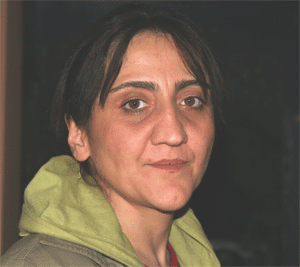 First forum of Georgian journalists incorporated over five hundred delegates.
First forum of Georgian journalists incorporated over five hundred delegates.
On December 24 forum “Georgian Media for Freedom of Expression-Media Challenges in 21st Century” was held in the “Sheraton Metekhi Palace”. Many journalists with controversial visions met each other there. However, all of them attended the forum for one common reason-they had something to say.
The forum was attended by famous TV journalists who are generally considered TV stars as well as less famous reporters who make everyday media issues. Political scientists, sociologists, media experts and unemployed journalists who were reduced from TV stations and journalists who were deprived from their TV frequencies attended the forum. Everybody was there-those who have already become famous for their impartiality and those who are not very much appreciated among their colleagues because of their bad reputation.
The aim of the forum was not only promoting journalistic cocktail. The organizers wanted all journalists to analyze and estimate the on-going events in the Georgian journalism. Participants should have discuss the role of the modern journalism in the social-political life of the country, about the cases and forms of the restriction of the freedom of expression, journalistic ethics, preservation of the joint leadership and professional solidarity, about the means how to develop regional journalism…
Initiative group of journalists enacted a special declaration which was signed by participants according to their own will. The declaration lists all journalistic norms which should be complied with journalistic norms. However, in regard of various journalistic backgrounds, part of journalists did not sign the document. Another part suggested working out the draft declaration again. Mostly they expressed their own ideas about the current situation in Georgian media.
Journalist Irma Inashvili, who was one of the forum organizers, started her speech with declaring the necessity of sincerity in their profession. “We should tell each other what we think in fact. Sincerity means speaking not in general way but discussing concrete faults. If I have made any mistake you should tell me directly what it was. It is necessary to mention and point at our mistakes.”
“What should a journalist do who has lost his/her job because s/he did not support any particular governmental group? I was blocked by all TV stations so I took part in the protest demonstration. I could express my own opinion loudly only there. During recent four years many of my colleagues and me, who had lost jobs, were mostly mistreated by other journalists and it must be mentioned.”
Journalist Ia Natadze also stated that journalists should frankly express their complaints about each other. She also added that she would not sign the declaration because it would also be signed by those people whose impartiality she is not sure in. “I would have signed similar declaration only with several people; though unfortunately the number of similar journalists is too small in Georgia.”
“I am ready to think and speak about my own mistakes.”
Giorgi Targamadze also expressed his readiness to participate in similar meetings and discussions. He wished that journalists from Imedi-TV, who have been already set free from censure, were not threatened with self-censure in future. Similar situation occurred after Rose Revolution.
Giorgi Kapanadze, editor-in-chief of the newspaper “Georgian Times”, was also strict in his speech and spoke about recently emerged “journalistic sects” in Georgia.
“I think similar forums should be organized more often. We have observed that participants here have controversial ideas and it is interesting. We should not criticize only politicians; we should also point at each other’s mistakes. A journalist should not attend demonstration, regardless the fact it is organized by government or opposition. If a journalist makes political statements s/he is not a journalist any more; s/he is a political activist of a certain political party and cannot teach moral to others.”
“Another case I am concerned about is existence of media sects in Georgian journalism. Certain groups of journalists are gathering during crucial situation; they prepare some declarations and only those people sign it who they have chosen. Consequently they consider that if you do not sign it you are against “Imedi TV”’; it is absurd. For example, people were calling me and asking why our newspaper had not joined the declaration where singers demanded resuming of TV Imedi’s broadcasting. I cannot understand why they invited only part of journalists. Why they did not invite “Alia”, “Akhali Taoba” and us?”
A part of forum considered that journalists should not remind each other of moral. However, most of them pointed out that similar meetings should be arranged more often.
Eka Kevanishvili, Tbilisi



